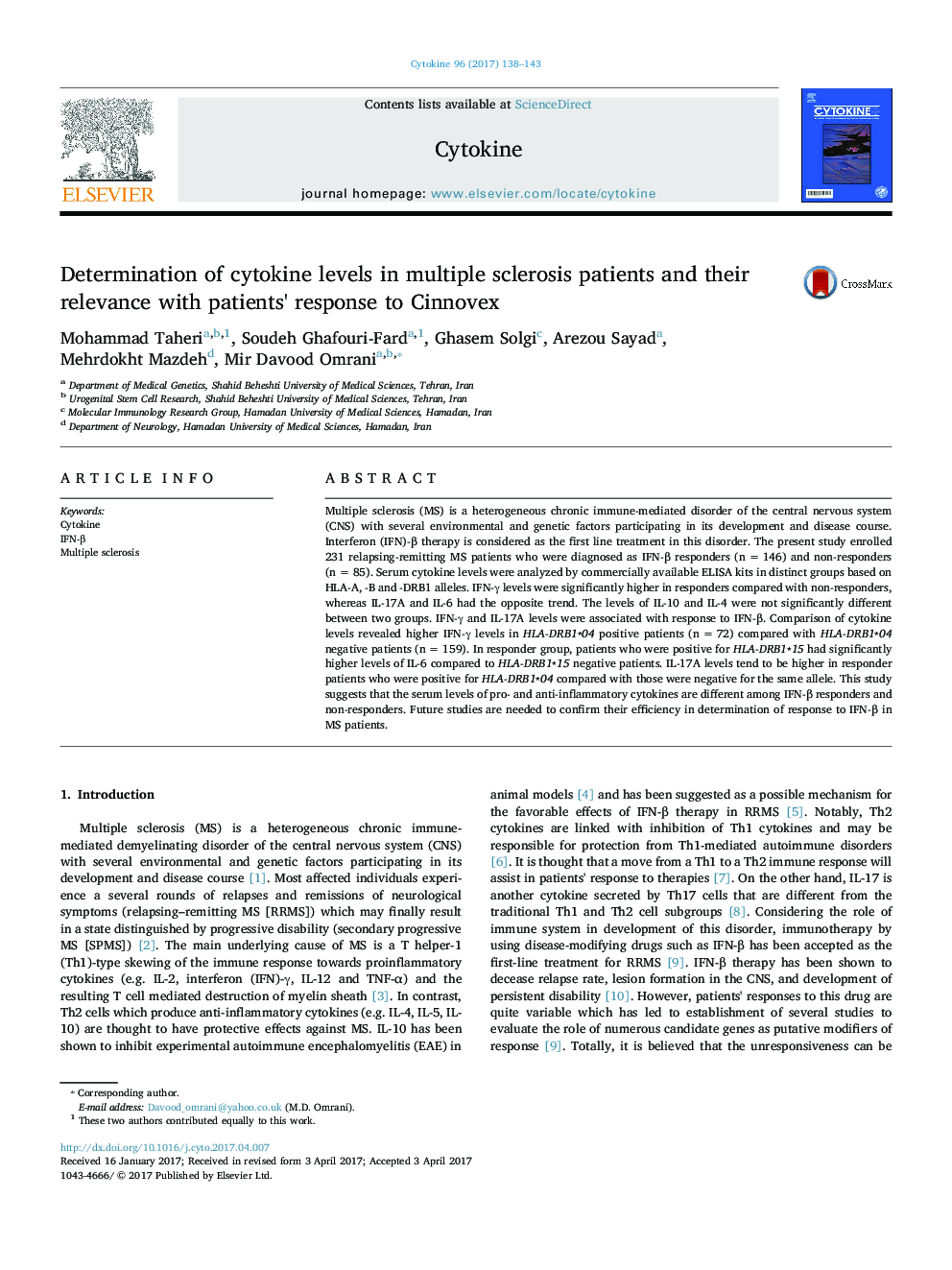| Article ID | Journal | Published Year | Pages | File Type |
|---|---|---|---|---|
| 5586988 | Cytokine | 2017 | 6 Pages |
Abstract
Multiple sclerosis (MS) is a heterogeneous chronic immune-mediated disorder of the central nervous system (CNS) with several environmental and genetic factors participating in its development and disease course. Interferon (IFN)-β therapy is considered as the first line treatment in this disorder. The present study enrolled 231 relapsing-remitting MS patients who were diagnosed as IFN-β responders (n = 146) and non-responders (n = 85). Serum cytokine levels were analyzed by commercially available ELISA kits in distinct groups based on HLA-A, -B and -DRB1 alleles. IFN-γ levels were significantly higher in responders compared with non-responders, whereas IL-17A and IL-6 had the opposite trend. The levels of IL-10 and IL-4 were not significantly different between two groups. IFN-γ and IL-17A levels were associated with response to IFN-β. Comparison of cytokine levels revealed higher IFN-γ levels in HLA-DRB1â04 positive patients (n = 72) compared with HLA-DRB1â04 negative patients (n = 159). In responder group, patients who were positive for HLA-DRB1â15 had significantly higher levels of IL-6 compared to HLA-DRB1â15 negative patients. IL-17A levels tend to be higher in responder patients who were positive for HLA-DRB1â04 compared with those were negative for the same allele. This study suggests that the serum levels of pro- and anti-inflammatory cytokines are different among IFN-β responders and non-responders. Future studies are needed to confirm their efficiency in determination of response to IFN-β in MS patients.
Keywords
Related Topics
Life Sciences
Biochemistry, Genetics and Molecular Biology
Endocrinology
Authors
Mohammad Taheri, Soudeh Ghafouri-Fard, Ghasem Solgi, Arezou Sayad, Mehrdokht Mazdeh, Mir Davood Omrani,
